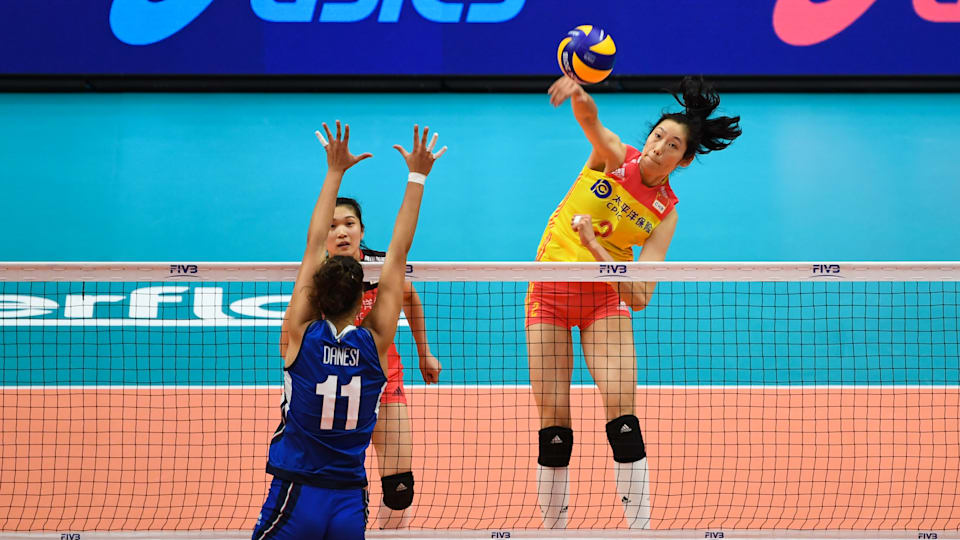Chinese captain Zhu Ting: From farm girl to national sports hero
How Olympic champion Zhu Ting wants to leave her mark on Chinese volleyball

Zhu Ting is one of the most recognisable faces in Chinese sport right now.
The 25-year-old is the captain of China's women's volleyball team, a sports representative in China's National People's Congress, and was named the most valuable player during China's run to Olympic gold at Rio 2016.
But she wants to leave a legacy bigger than just being a well-known name to sports fans.
'Obscure' beginnings
Zhu comes from a small village in China's central Henan Province, where she grew up one of five daughters of a poor farming family.
China's Global Times even called her hometown, Zhudalou village, "an obscure and poverty-stricken place".
She moved to a national sports school at a young age and made her debut for the national team aged 18 in 2013, quickly becoming an integral part of the squad.
Her rags-to-riches story has captured the imagination of the Chinese public. After the Rio Olympics triumph, her father Zhu Anliang told reporters: "When she was a little girl our family was so poor that we could not afford a photo of her, now our lives are better."
Local politicians even replaced a dirt path at the entrance to Zhudalou with a concrete road, which villagers have named Zhu Ting Road after the outside hitter.
"Seven fairies"
Zhu is one of national coach Lang Ping's key players, dubbed by Chinese fans and media as the "seven fairies" (七仙女).
Lang and the team have been holed up training in isolation in Beijing, but Lang – the protagonist in the upcoming Olympic Channel Five Rings Films documentary The Iron Hammer – told China Daily the team will come out of the extended training period stronger.
"Everybody is a little bit tired after sticking to the routine for so long, but whatever challenges the uncertainty might bring us, our strategy is and will always be […] to focus on wherever we can improve," Lang said.
It's all part of Lang's philosophy for the team, nüpai jingshen ("women's volleyball spirit") – and Zhu has a big role to play in it.
The Iron Hammer is not the only film about Chinese women's volleyball due to be released, with Zhu also set to star as herself in the upcoming Chinese film "Leap", which encapsulates the idea of nüpai jingshen.
Popularity and humility
Zhu is immensely popular in her home country, in part due to her background but also thanks to her incredible ability.
This was summarised earlier this year when a nurse on the coronavirus frontlines in Wuhan was pictured with a drawing of Zhu on her protective equipment, with the words "proud I was born in Zhu Ting's era".
For her part, the athlete herself tries not to let the attention go to her head and continues to work to improve.
"There has never been a 'best player'," she said. "Only a better one."
Even on the court, Zhu says her 'captain' label doesn't apply and she is just one of the squad members. "Me being the captain is just an idea to the public, but within the team, I’m not really ‘leading’ my teammates.
"They don't call me captain, they call me Zhu."
"Ordinary farm girl"
Zhu could be a mainstay of the national side for years to come, although at 25 she's now considered a middle-aged player in her sport.
She has told Chinese television that she aims to compete at three Olympics. That would mean going until Paris 2024 at least.
"Personally, I would like to be able to do this, but it will take another five or six years and I hope my competitive ability can be maintained.
"I must keep my advantage in the field, and as a member of Chinese women volleyball team, I also have the responsibility to lead our younger members by improving myself."
Whether or not she makes it to Paris, one thing won't change in Zhudalou.
"When she comes back to the village she is still just an ordinary farm girl from an ordinary farmer's family," her father said.
